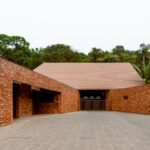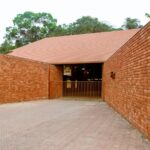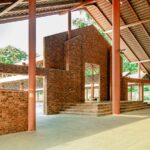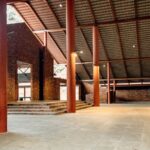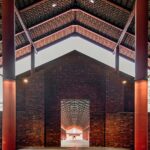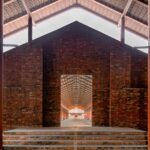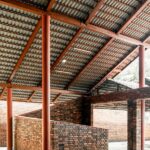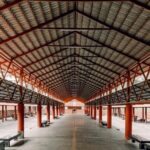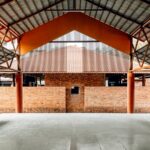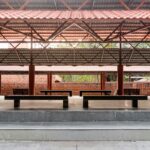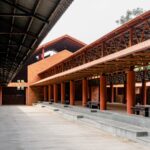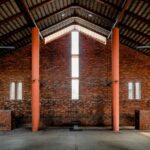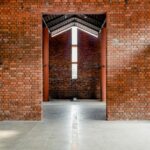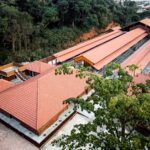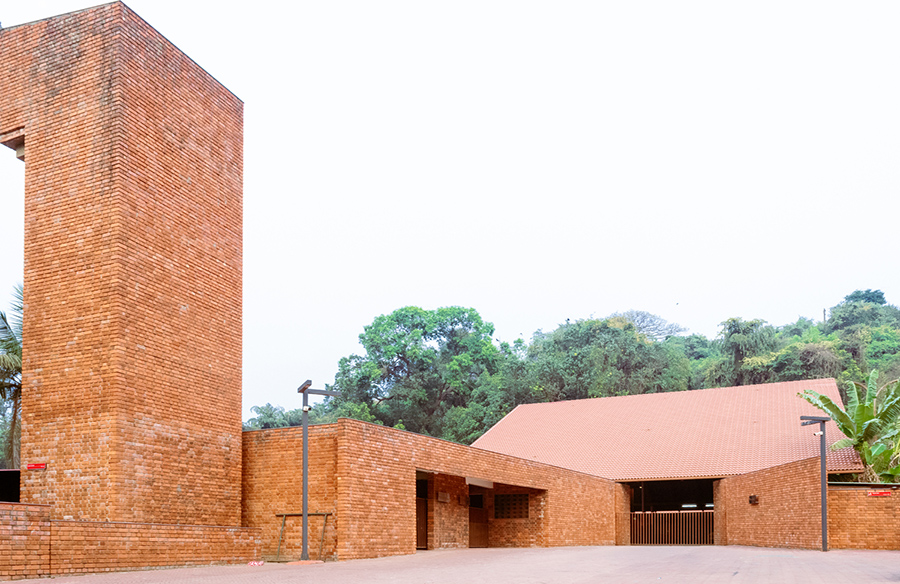
In 2021, Rahul Deshpande and Associates undertook a unique design challenge in Panaji, India, where four distinct religious groups—Hindus, Shia Muslims, Sunni Muslims, and Lingayats—shared a single parcel of land for performing last rites and rituals for their departed. This endeavor required navigating the diverse religious beliefs and practices while ensuring each community’s identity and privacy were respected.
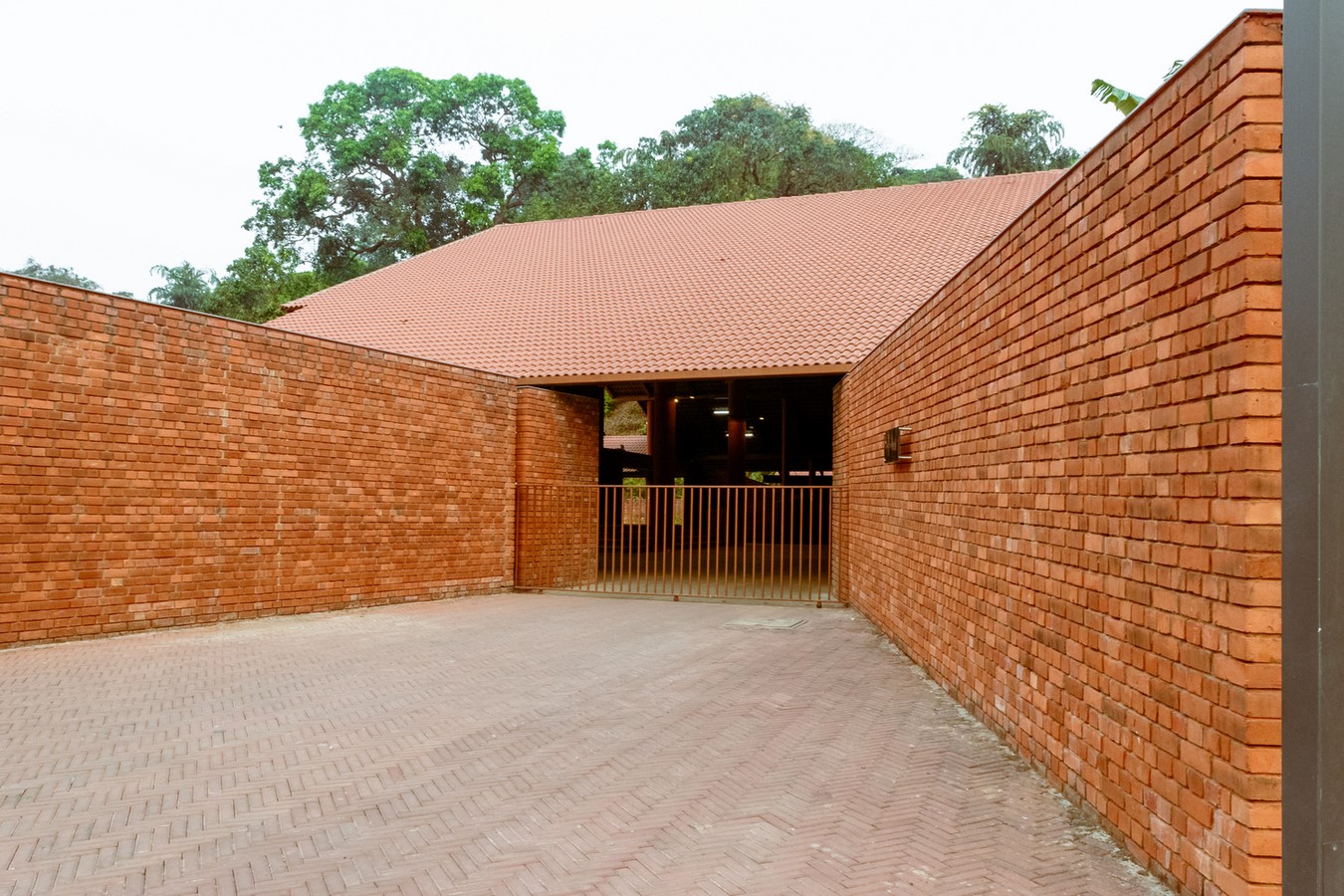
Designing for Unity
The municipality divided the land into different segments with common access, necessitating a universal design language that could accommodate the varied religious requirements. Bricks were chosen for their natural color, sourced from a local kiln, symbolizing the unity of humanity. Regardless of religious affiliation, all communities shared this common material, fostering a sense of oneness.
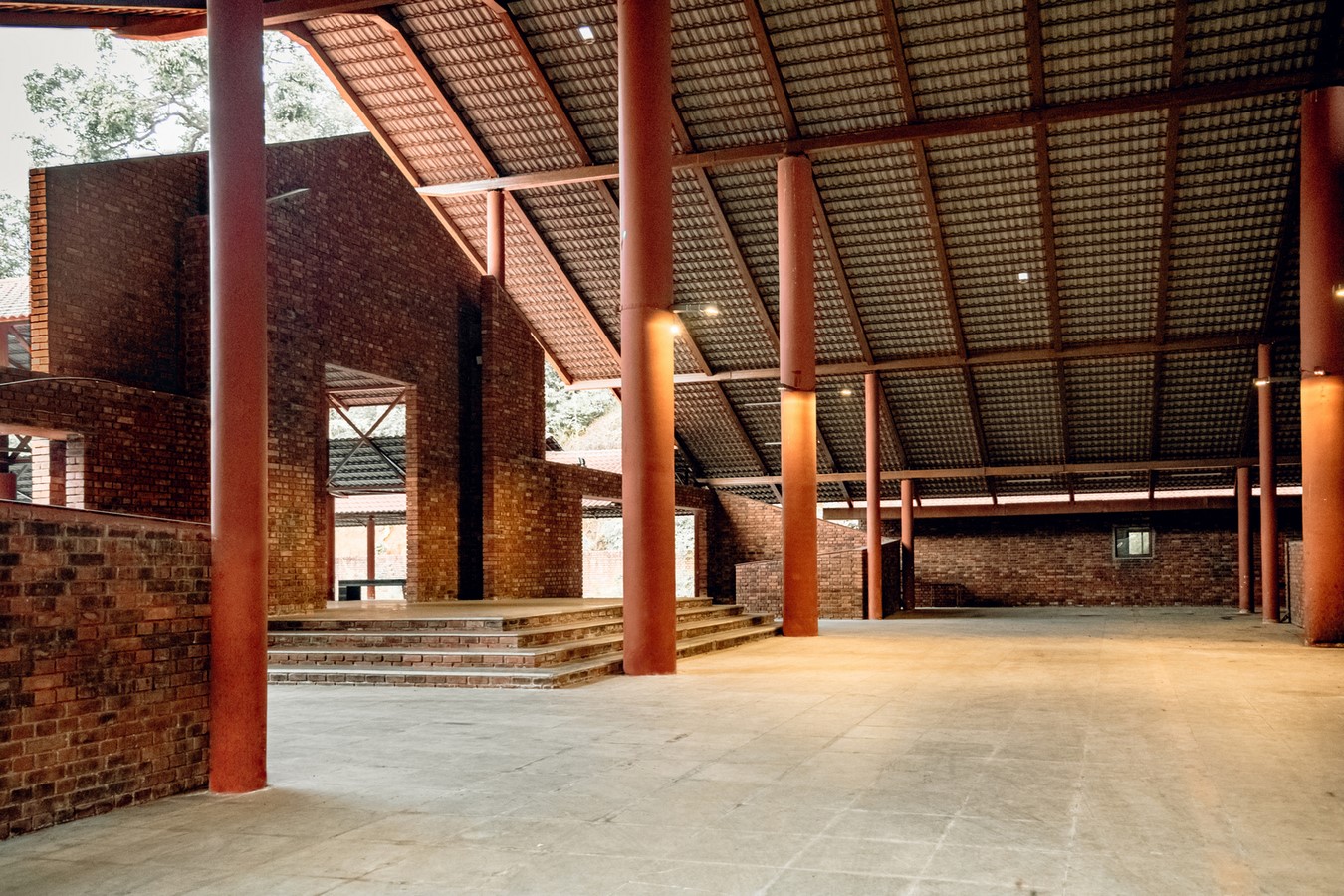
Conceptual Framework: MOKSHA
The crematorium was aptly named MOKSHA, derived from Sanskrit, meaning “Liberation” from the cycle of life and death. The design echoed this concept, embodying simplicity, tranquility, and minimalism. Clean lines, balanced massing, and subtle lighting evoked a sense of calmness and silence, guiding mourners towards the ultimate state of nothingness.
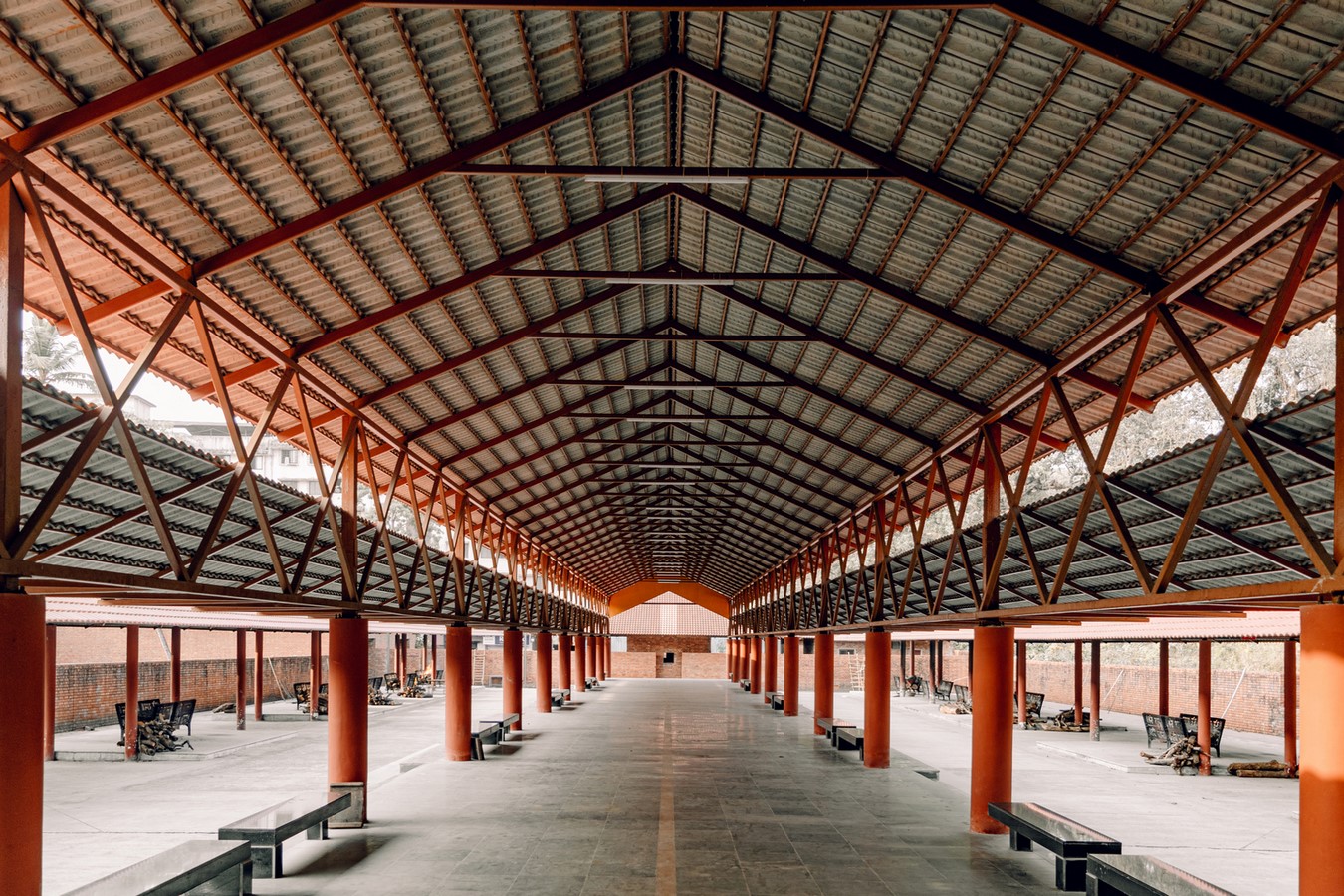
Collaborative Process
The design process spanned nine years, characterized by collaboration and negotiation among religious groups, clergy, and bureaucratic entities. Challenges arose, but solutions were found through dialogue and compromise. The construction utilized simple masonry techniques, reinforced with concrete columns and steel structures, topped with locally sourced clay tiles.
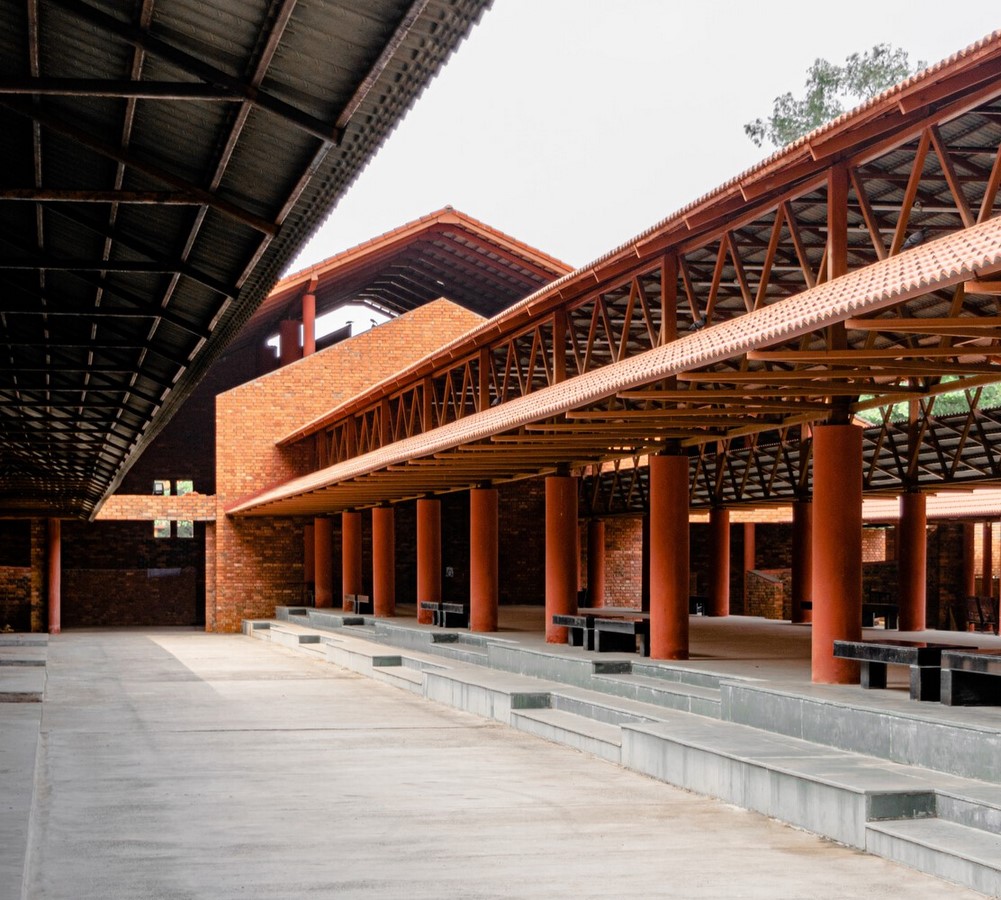
Spatial Experience and Counseling
The architecture of MOKSHA aimed to complement the emotional state of mourners, offering subtle guidance and solace. The spacious lobby, softly illuminated from above, symbolized the sense of loss and solitude. A latticed steel structure guided mourners to the cremation site, where sheltered pyres resembled small countryside houses, imparting a sense of departure from home rather than a mere cremation ground.
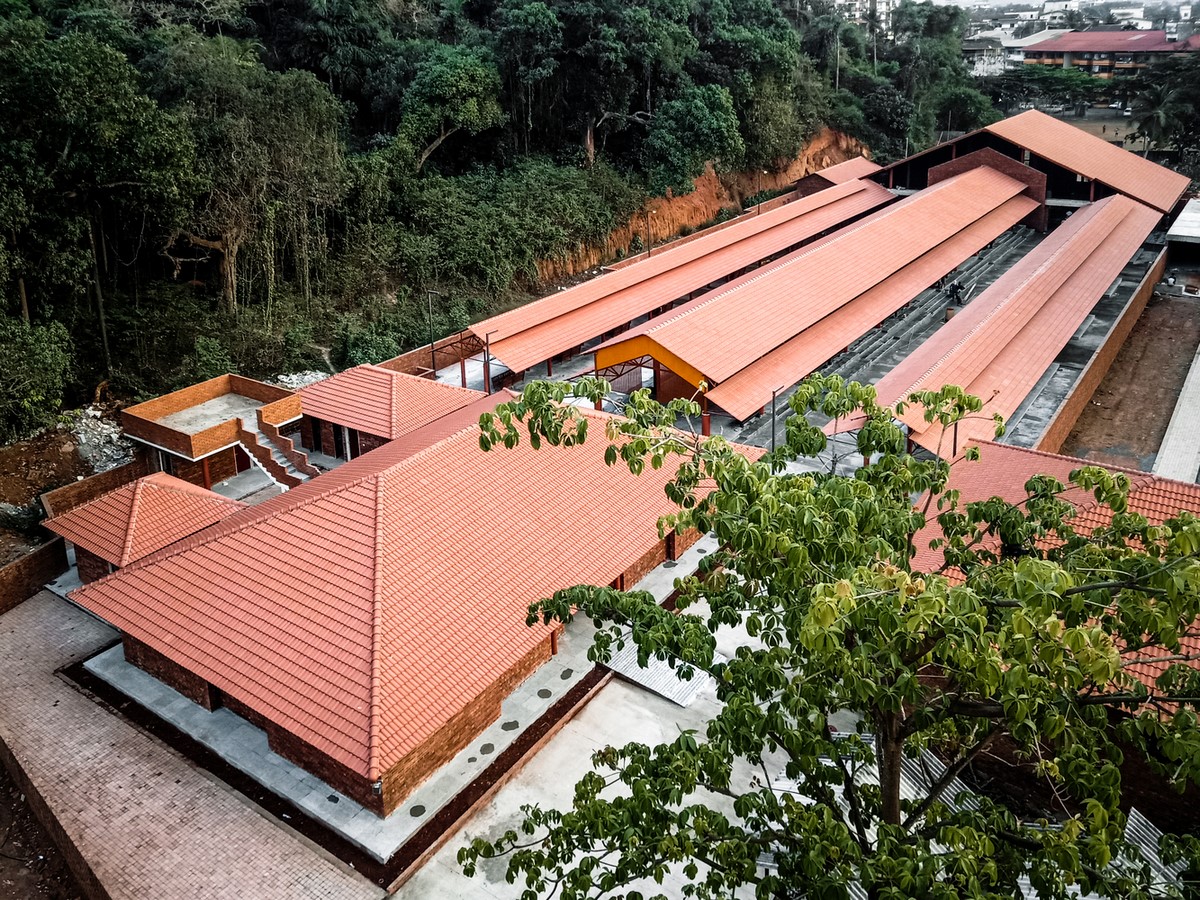
Conclusion
The MOKSHA Crematorium in Panaji stands as a testament to the power of architecture to bridge cultural divides and honor diverse religious practices. Through thoughtful design and inclusive principles, Rahul Deshpande and Associates have created a sacred space where communities come together to bid farewell to their loved ones, finding solace and unity in the face of loss.






